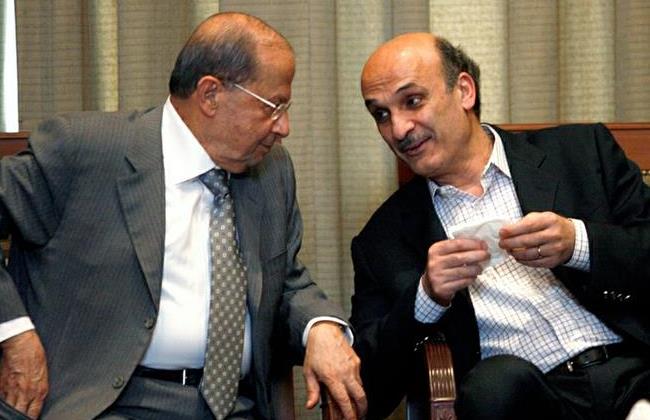No big loss/Samir Geagea’s political calculation is working
Michael Young/Now Lebanon/March 24/16
Samir Geagea’s political calculation is working
Samir Geagea’s critics perhaps owe him an apology. Two months after he endorsed Michel Aoun for the presidency, his move looks more and more well-calculated. Better still, he has avoided the potential pitfalls of that decision. Geagea was much criticized for backing Aoun, because there was very little likelihood that the general would be elected. Maybe, but that would be misunderstanding what the Lebanese Forces leader was trying to accomplish. Geagea wanted to show Aoun that Hezbollah was not serious about supporting him, and this has been achieved. Sayyed Hassan Nasrallah’s speech at the end of January in which he said Hezbollah was with Aoun but would not persuade its allies to vote for the general confirmed it. Second, is Geagea really that devastated that Aoun has not been elected president? Aoun’s triumph was a price the Lebanese Forces leader was willing to pay for the real reason why he supported Aoun, but the fact that he was not elected is preferable. Geagea now benefits from the arrangement, but will not have to face the possibly negative consequences of a Aoun victory.
Which brings us to Geagea’s true intention in rallying behind Aoun, namely ensuring that the Lebanese Forces would expand their representation in forthcoming elections, both parliamentary and municipal. Recall that Geagea had championed the abysmal Orthodox proposal precisely for that reason, fearing that another poor showing in parliamentary elections on the basis of the 1960 law would permanently marginalize the Lebanese Forces. With municipal elections looming, Geagea will probably see the first benefits of the alliance with Aoun he was so instrumental in forming. If there are any doubts, just look at the reactions of the other Christian political forces, particularly the Kataeb Party and the independent March 14 Christians. All have reacted uneasily to the Aounist-Lebanese Forces pact, knowing that it may well lead to their own sidelining in the Christian community.
And they are right. Geagea grasped the symbolic power of a move that resulted in Christian unity, or at least the unity of the two largest Christian political blocs. As the godfather of such a move, the Lebanese Forces leader has earned considerable communal credit, which he will try to cash in on after Aoun’s demise. What has Geagea really lost? The alliance with Saad Hariri and the Future Movement? In reality it was no great loss as far as Geagea is concerned. The alliance did not bring him many more seats in parliament or in municipal elections, a major reason why Geagea was willing to go along with the Orthodox proposal. Seeing that Hariri was unwilling to reserve enough seats for him, the Lebanese Forces leader preferred to go off on his own.
Nor did Geagea lose anything on the presidency. Hariri’s switch to Sleiman Franjieh, done without consultation with Geagea, was viewed by the Lebanese Forces leader as a betrayal. Not only had he been dropped, he had been dropped for his principal Maronite rival, who hails from the same north Lebanon area as he. Understandably, Geagea saw this as posing another existential threat to his political future, and maneuvered to prevent it. Saad Hariri’s own political problems have also rendered the breakdown in the Lebanese Forces-Future alliance more acceptable. Hariri, facing a major financial crisis and struggling to rebuild his appeal in Lebanon after a five-year absence, was not in a position to give Geagea what he was looking for anyway. Hariri preferred to put his political weight behind Franjieh, showing Geagea that it was a good time for him to bolt.
Even Geagea’s loss of his direct line to Saudi Arabia is bearable if it means he can consolidate his position on the domestic Christian scene. The Saudis, for now at least, appear to have disengaged from Lebanon, so Geagea probably feels that his relationship with them was bound to bring diminishing returns.
Geagea is learning, like Walid Jumblatt before him, that there are advantages in pursuing a middle course in Lebanese politics. It means being able to play both sides off against each other. Some have lamented the death of March 14, but what was always more important than the alliance itself was the principles it defended: opposition to a return of Syrian hegemony; resistance against Hezbollah’s parallel state; and the re-emergence of a sovereign Lebanon based on coexistence, as embodied in the Taif accord. Whether Geagea is allied with Hariri or not, neither man is about to abandon those objectives. When needed they can rejoin forces. However, in the interim Geagea is happy to have finally been freed of a March 14 alliance that brought him few real benefits.
**Michael Young is a writer and editor in Beirut. He tweets @BeirutCalling.




















